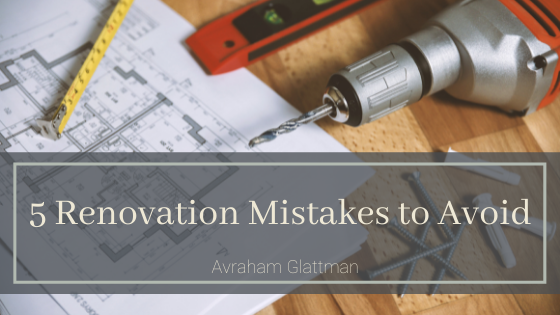Renovations can be a lot of work, but they don’t have to be complicated. Read this article for a list of the top renovation mistakes that you should avoid, so your home improvement project goes smoothly.
1) Not hiring an architect or interior designer
Architects and interior designers know what is needed in terms of space, function, materials, and aesthetics for any given property type. They also know how to use your budget without sacrificing quality efficiently. The result will be an improved home that maximizes its potential as well as living comfort and enjoyment.
2) Choosing the wrong contractor
A lousy contractor won’t just charge too much; he may not do things right in the first place (using inferior materials), take shortcuts (which means patchwork is needed later), or charge for extra time spent due to his own mistakes. To minimize your chances of hiring the wrong contractor, get a few estimates from different contractors for each element of your project, and shop around before selecting a contractor.
3) Not planning ahead
If you don’t have an idea of what you exactly want to do with your home before you sign a contract, start getting ideas and plans from architects and designers.
4) Doing too much at once
If every room is under construction simultaneously, it can be hard to plan around all of the noise during the project. It will also cost more to have so many projects going on at the same time. Instead, do one room at a time while you live in the house. This way, you can move around each room as soon as it’s finished and get used to your new space before moving on to the next.
5) Buying cheap materials
It is tempting to go for low-cost materials, but if you do, they might not last. It’s better to get high-quality materials that may be more expensive in the short term but save money over time by lasting longer and needing minor repair.
6) Failing to allow for potential problems
With any project, there are going to be unexpected issues that come up as they go along. Being prepared for these kinds of issues allows you to stay on schedule and within your budget. Ensure the contract includes cost estimates for any potential problems that may come about during construction and extra material costs.
7) Not getting a professional finalized plan
Do not start any home improvement project without getting an architect or interior designer to finalize the plans. The money spent on this will be worth it in reduced hassle, less time wasted, and lower costs due to errors later.
